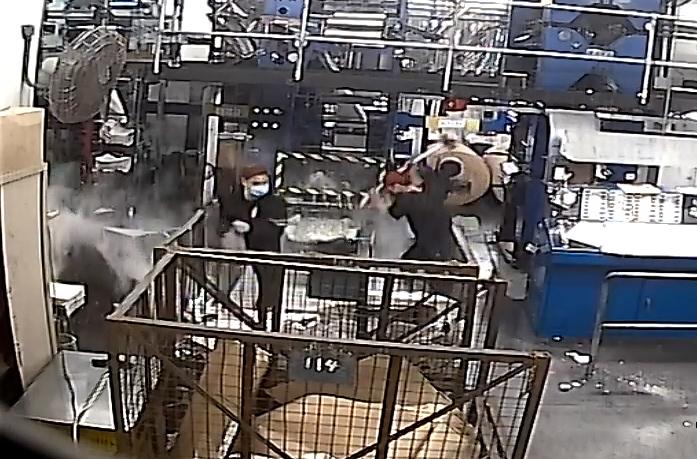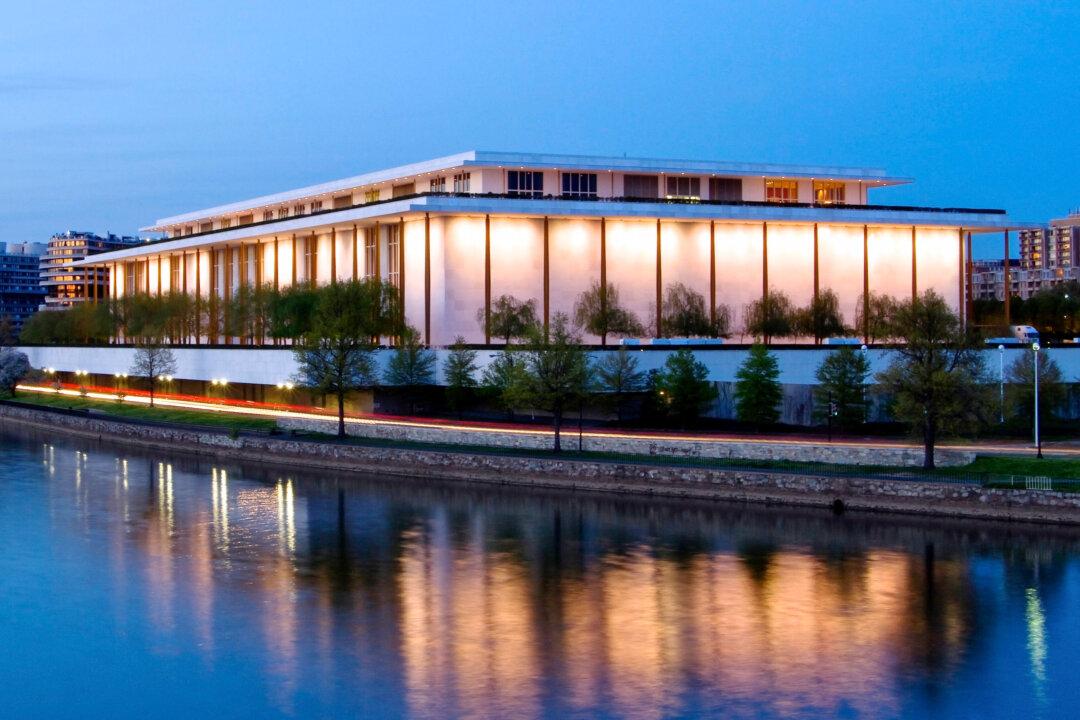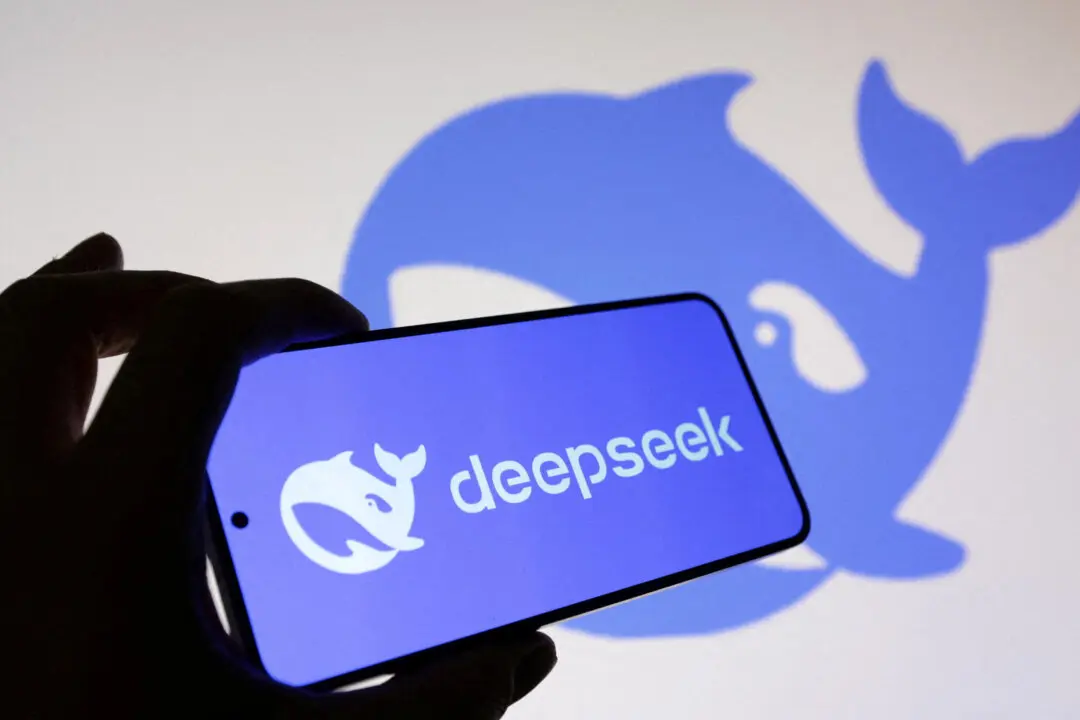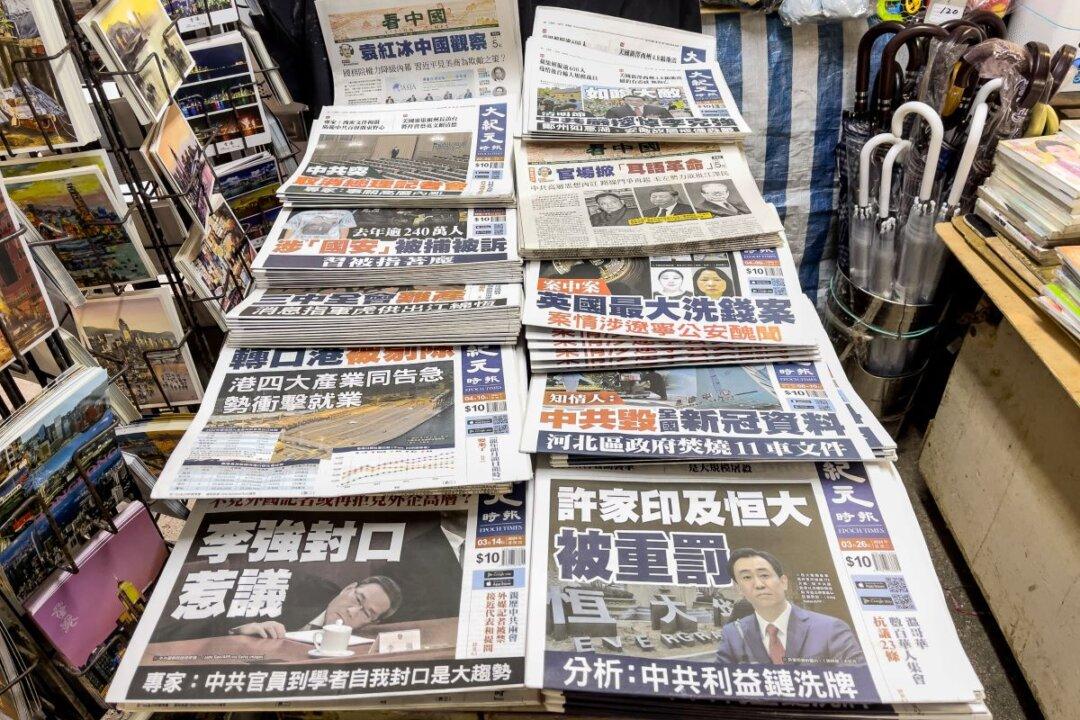“Hong Kong is the perfect example of how the CCP turned a free society into one where people fear speaking freely,” Guo said in a recent interview for The Epoch Times’ “American Thought Leaders” program.
“Today, even the Oscars can’t be aired in Hong Kong because movies have to be reviewed by the Chinese regime before they can be played in Hong Kong theaters. The Chinese regime, step by step, turned Hong Kong into this,” she said, adding that she has observed the same phenomenon happening in the West.
“Hollywood, some big tech companies, Wall Street, they need to do business with China, so they toe the Chinese Communist Party line when it comes to topics that the Chinese Communist Party does not like,” she said.
“Imperceptibly, things change around you and you realize the world is different,” she said. “People don’t dare to say what they really feel because they fear being attacked or discriminated against.”
Guo noted that some may find it hard to conceive that this could be happening in a free society.
“But who’s behind all of this, controlling all of this? Who’s using financial incentives and China’s market as bargaining chips to change the entire world?” she said.
“We know it’s the Chinese Communist Party, and it’s honed its skills in Hong Kong.”

Bringing the Truth
On April 12, four men barged into The Epoch Times’ printing plant in Hong Kong. Wielding sledgehammers, two of them smashed critical printing equipment, bringing the outlet’s newspaper distribution to a halt. The edition resumed publication on April 16, in time to cover the sentencing of Lai and other prominent pro-democracy activists.“The Epoch Times doesn’t have any hostile enemies because we don’t owe any debts and we never had any financial conflicts with groups or individuals,” she said.
Guo, who was among the founding members of The Epoch Times in Atlanta, Georgia, in 2000, said the scarcity of independent information from inside China was what motivated the group to establish the newspaper.
They wanted to “bring the truth of China to the entire world and also convey international voices to the Chinese people,” Guo said.
But “our newspaper at that time was able to report the truth about this event to the world,” she said.
“It was the Hong Kong Epoch Times that first broke the story,” Guo said.

Sabotage
But the outlet’s unfiltered reporting of the Chinese regime has come at a cost. Not long after the organization’s founding, its first cohort of reporters in China were all arrested.“A lot of them are graduates from Tsinghua [University] and other prestigious universities in China,” Guo said. “They were tortured for a long time in prisons in China.”
Even today, reporters with the outlet are targeted by the regime.
“We also have a lot of reporters globally whose family members continue to be harassed and threatened in China,” she said.
Guo herself has been the target of intimidation by the CCP. When she moved to Hong Kong to work at the edition, she received a letter demanding that she immediately leave the city. The writer also said they would surveil her every move and follow her wherever she goes.
The regime had also attempted to sabotage the Hong Kong edition by putting pressure on retailers and advertisers. Guo recalled one instance in which a small advertising client in Hong Kong received threatening letters in four different languages.
“Some of these clients [in Hong Kong] are Koreans or from other countries, so the Chinese regime uses different languages to threaten and harass them,” she said.
In May 2019, the Hong Kong Epoch Times started selling newspapers in about 500 7-Eleven stores in the city.
“People were very happy that it was now very convenient to purchase The Epoch Times,” Guo said.
But that arrangement didn’t last long.
Not Backing Down
What the regime seeks to achieve is “not just about filtering out one or two news items,” but to export its entire system through a combination of threats and economic coercion, Guo says.Because Hong Kong was free from Western sanctions until recently, the Chinese regime has taken advantage of Hong Kong’s status as an international financial center to attract foreign investment and engage in forced technology transfer, she said.
“Its tactics are to lie and to use financial incentives to get major financial groups to partner with it, and these big financial groups and companies control the media and important institutions,” she said. “Financial incentives make people lose their conscience, to self-censor, and to even restrict other people’s free speech.”
“You can be very financially free and relatively prosperous, but fundamentally you have to operate within the rules of the Chinese regime,” Guo said. “Your freedoms are restricted, you have to give up freedom of speech, and you have to attack the other group of people so that they can’t speak up.”
Asked whether she was afraid, Guo vowed to never back down.
“For us, humans must have basic dignity, basic freedoms of expression,” she said. “There’s no turning back for us because this is so essential. If we give up even this, then we won’t have basic dignity.”
Guo added that she’s received a lot of advice about moving operations elsewhere due to the escalating political pressure. She urged the free world to stand together in protecting Hong Kong’s basic rights and supporting the paper’s persistence in the city, calling it a “shared responsibility.”
“A popular nickname for Hong Kong is ‘base to counter the CCP,’” she said. “The Chinese regime also sees this. Its strategy this time around is to take Hong Kong but not its people ... through intimidation and threat.”
“If it really comes to that point one day, I feel it would be a tragedy, not just for Hong Kong people and Chinese people, but very unfortunate for the world,” Guo said. “So we hope to stop this downward trend while we still can.”





